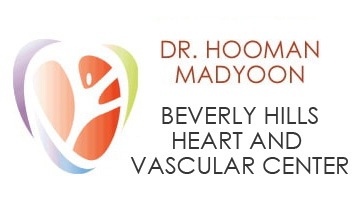Aging is a full-body experience that goes far beyond your skin down to your organs and veins. While it is true that you can stave off most serious damage to your cardiovascular system by maintaining a healthy lifestyle that does not mean your veins won’t age. Let’s look at the effects of aging on your veins.
Effects of Aging on Your Veins
In reality, everyone’s veins will age, and you will likely notice some effects of that aging. By choosing to understand how your veins age and by receiving the appropriate preemptive care, you can at least be sure that your veins are unlikely to slow you down.
How Veins Age
As your veins experience the aging process, you can expect three major changes to occur.
- Your baroreceptors will become less sensitive, which may cause your blood pressure to fluctuate with your position.
- Your capillary walls will thicken, slightly reducing the exchange of nutrients and waste.
- And your arteries will become less flexible, leading to slightly elevated blood pressure.
As long as these changes are minor, you probably won’t notice much of a difference. Symptoms that indicate a more radical change may include:
- Dizziness upon standing
- Irregular heartbeat
- Headaches
- Bloody noses
- New varicose veins
While it may be nothing, these symptoms can indicate that there’s been a change in the way your cardiovascular system operates. Meeting with your cardiovascular specialist in Los Angeles will either help you by providing meaningful treatment or by relieving your anxiety.
Common Cardiovascular Conditions Associated with Aging
Despite all of your great health choices, your heart and your veins will age. They will become less efficient, and that makes you far more susceptible to certain cardiovascular conditions. Some of the most common cardiovascular conditions associated with aging are:
- Aortic stenosis
- Anemia
- Aneurysms
- Arrhythmias
- Arteriosclerosis
- Blood clots
- Congestive heart failure
- Deep vein thrombosis
- Peripheral vascular disease
- Stroke
During your visit to the Beverly Hills Vein and Cardiovascular Institute, Dr. Madyoon will evaluate your total cardiovascular health. Multiple tests may be required, but you will have a much clearer sense of your risk and the preventative steps you can take to maintain your cardiovascular health.
Potential Red Flags
When there aren’t any glaring issues, your cardiovascular specialist will look at current function to ascertain the risk of a future cardiovascular event. Things like high blood pressure, high cholesterol, and signs of venous insufficiency are all red flags that something could go wrong down the road.
Fortunately, these red flags don’t mean you’re doomed to develop any of the conditions listed above. High blood pressure and high cholesterol can both be managed with medication, diet, and exercise. Venous insufficiency is slightly more complicated, but easily handled by your cardiologist.
What is Venous Insufficiency
The term venous insufficiency describes a condition where the vein valves in your legs cannot pump blood all the way back through the heart. While it does not always prove obvious, venous insufficiency relates to varicose veins, swelling, and pain in your legs.
While it is not immediately life-threatening, venous insufficiency does increase your risk of forming a blood clot deep in one of your legs. This is called deep vein thrombosis. If the clot breaks up and travels to your lungs or your brain, it could be fatal.
Dealing with Venous Insufficiency
The good news is that you can treat your venous insufficiency in Los Angeles. Once your condition has been diagnosed, you can schedule an appointment to have it addressed at your earliest convenience.
In just one 20 minute session of laser or radiofrequency ablation, your cardiologist can address the damaged valves and redirect blood flow through much healthier channels.

